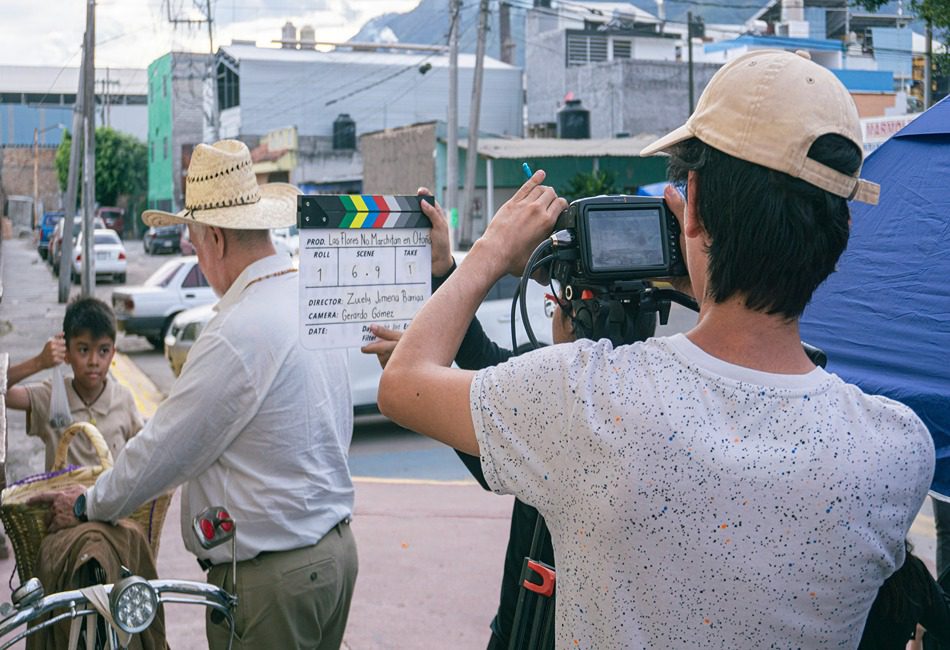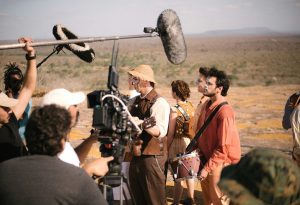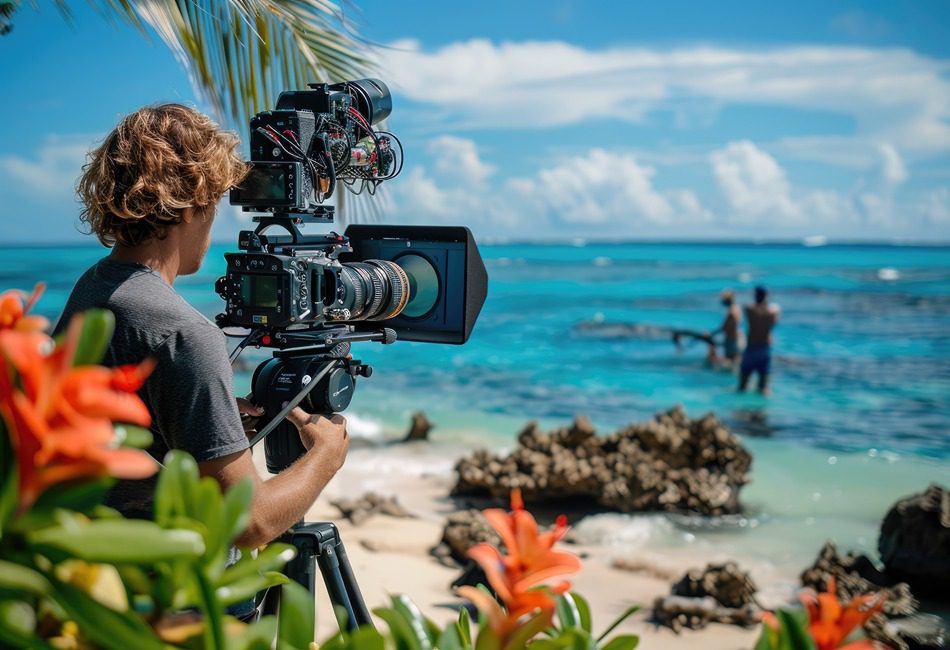Before the cameras roll, you’ll need to consider labor laws, cultural sensitivity and currency when filming in a foreign country
Choosing to film your project outside the United States comes with many benefits: tax incentives, lower production costs and distinct locations that visually enhance your story. Most importantly, working with local film crews and talent mitigates the additional travel and lodging costs associated with American crews. It also ensures authentic cultural representation in front of the camera and strengthens local industry relations.
What are some methods for handling local talent and crews? We offer some essential tips and best practices for international film production to ensure a smooth filmmaking experience.
Respect Cultural Etiquette and Local Languages
Even if your project showcases English speakers, it’s essential to hire an interpreter to communicate your vision to the cast and crew. You can employ production and actor interpreters through several international companies, many of which have employees stationed globally who can assist you regardless of your location.

Hiring local film crews and talent can ensure a smooth production in foreign locations. Photo credit: Canva
You should also be conscious of local labor customs, even if these aren’t specifically written into law. For example, many European crew workers are accustomed to “French hours,” which do not observe a set-wide lunch break or common hour and instead use a rolling 10-hour workday. Conversely, UK film crews are accustomed to afternoon teatimes around 4 p.m. You should ask your crew leaders ahead of time if this is the expected custom and plan your shot sequence accordingly.
Prepare for Different Labor Regulations and Negotiating with Film Unions
When hiring for domestic production and working with local film crews, directors typically select their crew heads and members through various guilds, such as costume design, lighting, set construction, etc. In contrast, many international countries streamline their unions to actors, musicians and writers, with all other disciplines combined into a single labor pool. Consequently, negotiating with film unions is essential, and you will need to develop strong relationships with union leaders and hiring managers immediately to staff your crew effectively. Be sure to consult organizations such as the Broadcasting, Entertainment, Communications and Theatre Union (BECTU) in the UK or the Union of Bulgarian Film Makers to ensure access to these hiring pools.

When filming abroad, it’s vital to consider permit laws and cultural differences. Photo credit: Ricardo Loaiza/Unsplash
Additionally, when hiring local talent for films, it is essential to be aware of the country’s hiring practices and the reasons for dismissal. The United States typically adheres to at-will employment, where an employee can be terminated for any reason and without warning (unless it is for illegal or discriminatory reasons regarding gender, race, sexual orientation, etc.) However, countries like France, Brazil and Japan require stringent reporting of poor job performance before firing, so be prepared to establish thorough workplace documentation or hiring criteria when operating in those nations.
You’ll also need to think considerably ahead when acquiring permits and studio space. Local film bureaus don’t necessarily handle this process, which varies by country. For instance, New Zealand requires all permits to be approved by the national Department of Conservation to preserve the country’s natural beauty. In contrast, India requires foreign film crews to obtain clearance for shooting locations through the Ministry of Information and Broadcasting. To be safe, it is recommended to secure a permit location 8-12 weeks prior to entering the country.
Ensure Proper Documentation for American Crew Members

Filming in Brazil. Photo credit: Lucas Vasconcelos/Unsplash
Actors, writers or other creatives who must accompany the production from the US will require a passport and work visa negotiated through the country where you will shoot. Your production will need to be approved as contributing to the local economy for cultural purposes, and many of these visas are typically approved in 90-day increments. This means you’ll need to finalize your filming schedule before communicating the production timeline and visa requirements to American crew members.
Establish an International Production Office
Before the cameras roll, you should establish a legal production entity within the country you’re planning to film in. This ensures that all payments will be handled in the local currency and that permitting and taxes are managed on-site, rather than in the United States. Once you’ve finalized this step, you’ll be free to negotiate pay rates with local labor.
Consult producers and directors of previous features or series that have recently wrapped in your planned country and establish hourly wages within 10% of this precedent (note that certain countries and unions will have mandatory payment floors). This will ensure access to the high-quality craftsmanship of previous productions and a streamlined hiring process, allowing you to focus on the more creative elements of your project. Even if you are working with a translator, document all financial discussions and transcribe all payment conversations for legal purposes and for local unions to consult as needed.
Consider Hiring a Cultural Advisor and Local Experts

Collaborating with international filmmakers. Photo credit: Brady Rogers/Unsplash
To properly immerse your audience in your film, you’ll want elements like clothing, language and music to accurately reflect a culture or time period. Besides working with local film crews, consider hiring a local cultural advisor to review your script and production documents, ensuring that any elements are accurate and respectful of local traditions. They can also direct you to local caterers, customers, makeup artists, and interior decorators who can lend verisimilitude to the setting you wish to create. International casting directors can also be helpful—they can identify local extras who accurately represent the area or period you’re filming in.
If you follow these steps for hiring local talent for film, your international shoot will be on firmer footing and create a more accurate depiction of the host country for your audience. If your film is successful and you work well with local talent, you may even develop a sustainable production model for future projects with your studio, creating cross-cultural collaboration in filmmaking in a way that only entertainment can accomplish.
By Miles Dobis, Contributing Writer
Be the first to discover hidden gem filming locations! Sign up for the Destination Film Guide newsletter and get the latest updates on filming incentives, location insights, and production resources.


